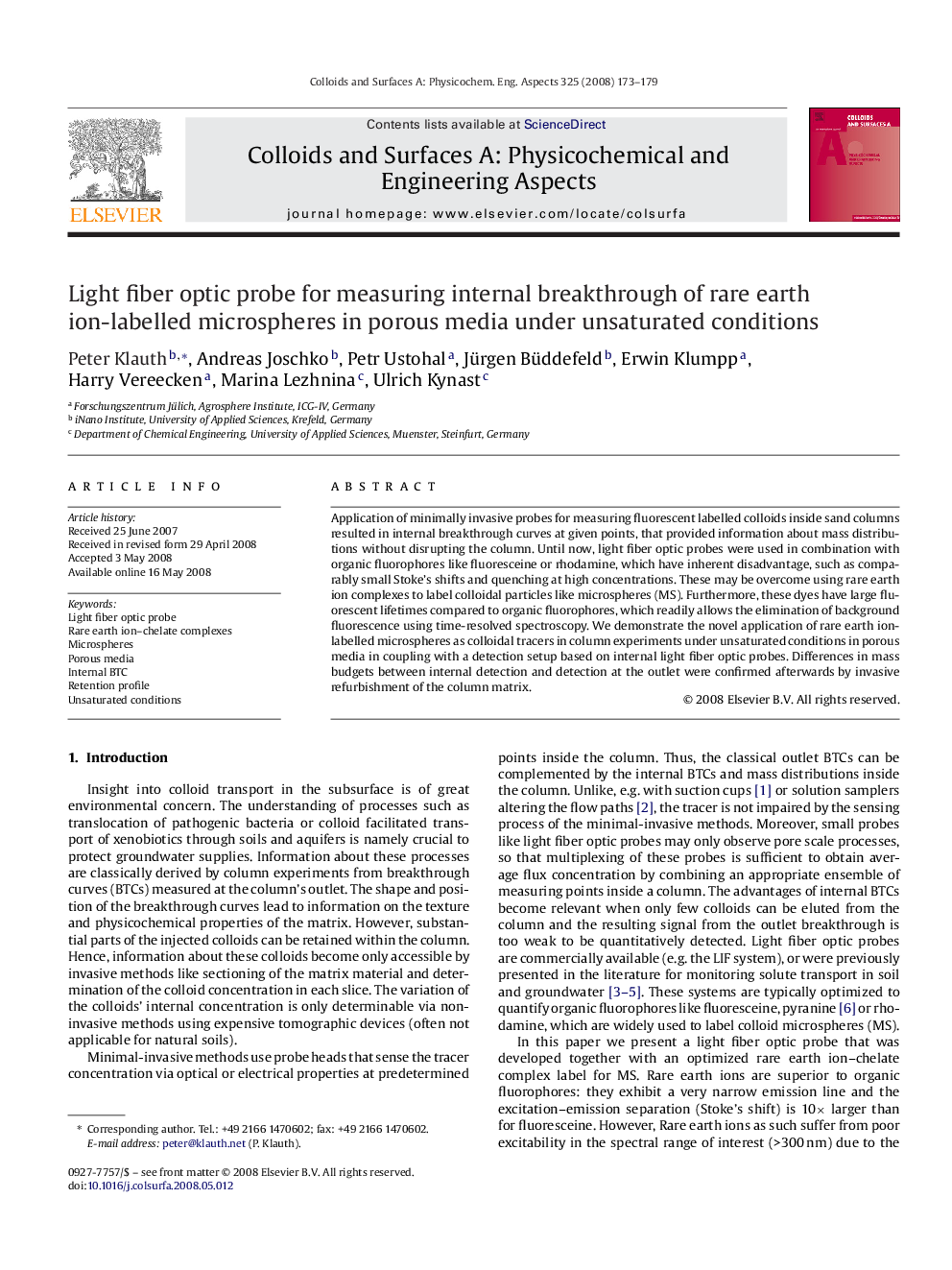| Article ID | Journal | Published Year | Pages | File Type |
|---|---|---|---|---|
| 596476 | Colloids and Surfaces A: Physicochemical and Engineering Aspects | 2008 | 7 Pages |
Application of minimally invasive probes for measuring fluorescent labelled colloids inside sand columns resulted in internal breakthrough curves at given points, that provided information about mass distributions without disrupting the column. Until now, light fiber optic probes were used in combination with organic fluorophores like fluoresceine or rhodamine, which have inherent disadvantage, such as comparably small Stoke's shifts and quenching at high concentrations. These may be overcome using rare earth ion complexes to label colloidal particles like microspheres (MS). Furthermore, these dyes have large fluorescent lifetimes compared to organic fluorophores, which readily allows the elimination of background fluorescence using time-resolved spectroscopy. We demonstrate the novel application of rare earth ion-labelled microspheres as colloidal tracers in column experiments under unsaturated conditions in porous media in coupling with a detection setup based on internal light fiber optic probes. Differences in mass budgets between internal detection and detection at the outlet were confirmed afterwards by invasive refurbishment of the column matrix.
